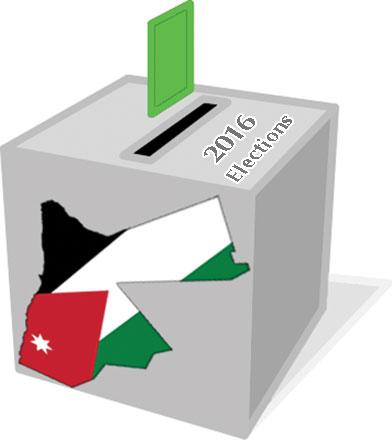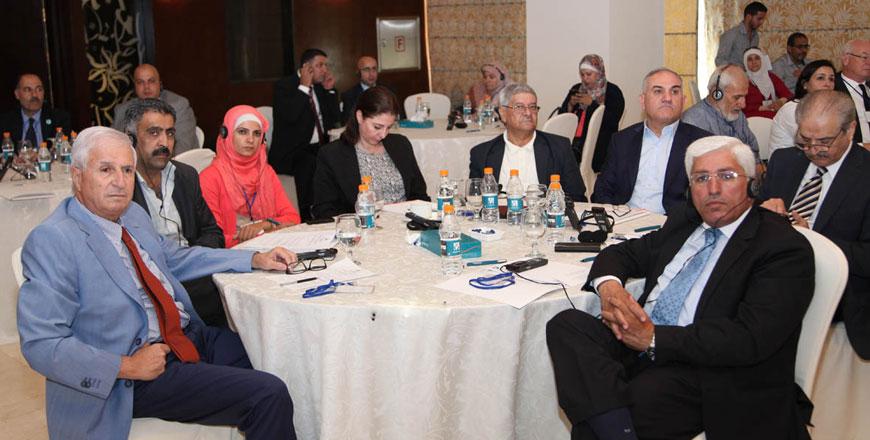You are here
‘Tribal loyalties will be decisive factor on Election Day, but polls a step forward’
By Omar Obeidat , Khetam Malkawi - Jul 31,2016 - Last updated at Jul 31,2016

AMMAN – Tribal and geographical considerations will continue to have a strong influence on Jordanians' voting decisions in the September 20 parliamentary elections, according to experts interviewed by The Jordan Times Sunday.
The commentators said electing candidates based on their programmes and visions will still need more time to mature in Jordan, particularly in areas outside major cities such as Amman, Irbid and Zarqa.
Several eligible voters, also interviewed over the phone Sunday, said they would select a tribal member when casting their ballots, adding that tribal candidates also have programmes to bring development to their constituencies.
Political analyst Nabil Ghishan said the new Elections Law aimed at eliminating the one-person, one-vote system by giving voters the choice to elect more than one candidate.
However, he said that law would fail to remove or even reduce tribal considerations, blaming that on the absence of mature political parties that run for the elections.
"The outcome of elections based on the existing law will be obvious once the results are out. I believe voters’ choices will remain the same,” Ghishan said.
Former MP and constitutional law expert, Mubarak Abu Yameen, described that current Elections Law as a step towards reform, "despite the fact that tribalism will have a strong influence on voters".
“It is about the culture here,” said Abu Yameen, adding that it will take some time for people in Jordan to select their representatives in the Lower House according to platforms put forward by candidates.
Abu Yameen agreed with Ghishan that the presence of strong and influential political parties is the remedy for changing the prevailing culture of voting based on connections and tribal affiliations rather than visions and programmes.
Secretary General of the National Current Party Saleh Irsheidat said that political parties see that transformation from tribalism-influenced choices to electing according to programmes will take time, adding that the previous electoral law allowed voters to elect a candidate in the same constituency and another from a national list, whose seats in the House were 27 out of the total 150.
"Voters had the choice to elect based on tribalism or geography but also to choose from a list they saw as the best in terms of serving national interests," he added.
Under the 2015 Elections Law, voting is based on the open proportional list at the district level.
The law stipulates that each list should include no fewer than three candidates and no more than the number of seats allocated for the constituency in which the list is competing.
Under the proportional electoral system, winning lists will be allocated seats according to the percentage of votes they received. The seats will be distributed to the ticket members with the most votes.
Recently, some political parties announced that they would build partnerships and coalitions with “tribal” figures to win larger representation in the coming Lower House.
The Islamic Action Front (IAF), the largest opposition party in Jordan and the National Building Initiative (Zamzam), a group of Muslim Brotherhood defectors, announced an identical policy in the election race this year.
Commenting on such planned alliances, Irsheidat said: “This will be on paper only”, explaining that the majority of voters will only give their vote to one candidate in a certain list.
Haytham Abu Zaid, a resident of Sahab town south of Amman, said “of course” he would vote for a candidate from his tribe.
“There are several candidates running from our tribe. But I will vote for the one who helped me secure a job in the government sector few years ago,” said the 30-year-old man.
The man was asked why he would not support candidates with development programmes, even if they were not from the same tribe.
“Our candidate has a programme to support the town. All candidates say they will do this and do that but never deliver. At least I know this man very well,” he replied.
Karak resident Ayman Rawashdeh, also said he would support a relative in the upcoming elections.
He noted that the tribe has selected a “competent man” to run for the elections, adding it is important to preserve the seat in the Lower House that the tribe has managed to occupy for the past years.
For Irbid resident, Mohammad Athamneh, winning a seat at the Parliament by a candidate from the tribe is a boost to the family.
“It adds to the prestige or reputation of the family,” he said.
On whether his decision to support the candidate was based on personal conviction or just because of loyalty to the tribe, Athamneh said it was a mix of both as there are more than one candidate running from the same family.
“I’m not an exception. This is the mentality of the majority of voters in Jordan,” he added.
Related Articles
AMMAN — Despite electoral reforms, some candidates in the northern governorates say they are still struggling to form or join lists for the
AMMAN — Minister of Political and Parliamentary Affairs Musa Maaytah on Wednesday said the government is keen to ensure the success of the u
AMMAN — While the government believes that political parties will gain power and influence by forming coalitions prior to the September 20 p















